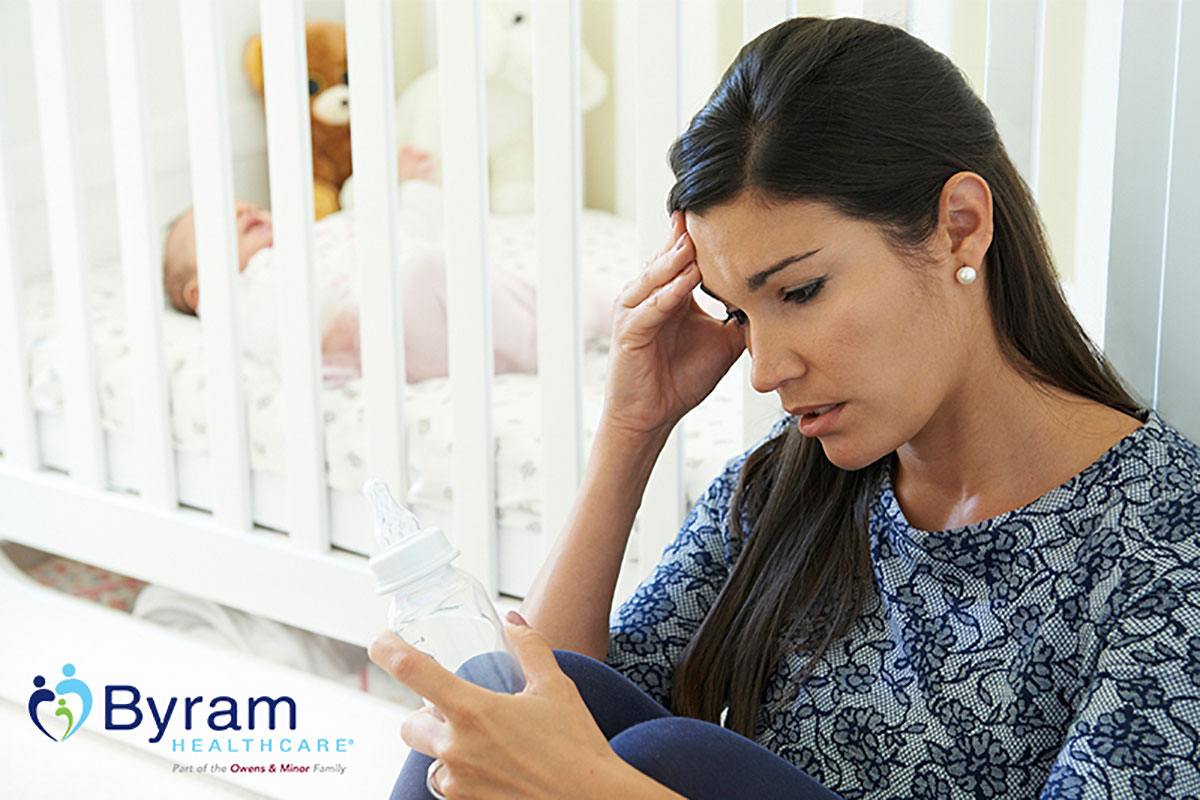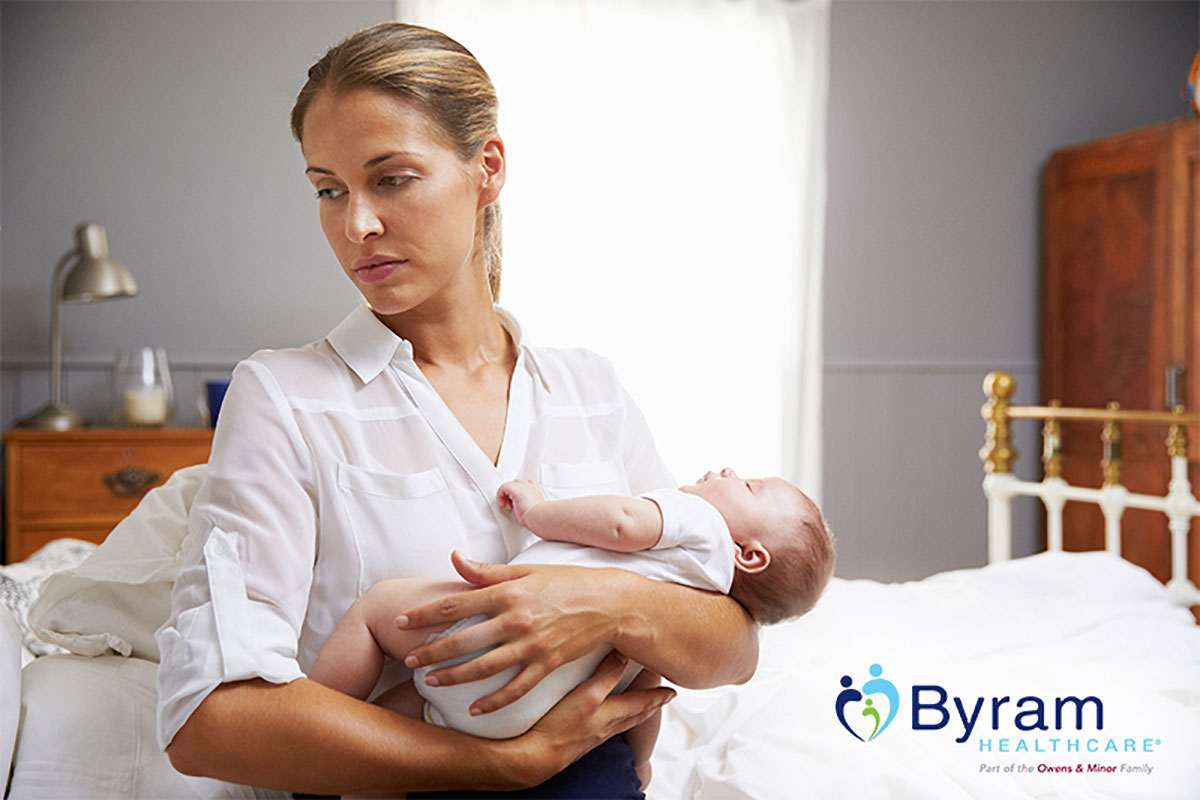Everything a Mom With Postpartum Depression Needs to Know
You’ll experience a lot of emotions as a new mom. From elation to frustration and everything in between, it’s a normal. The physical changes your body is going through paired with emotional stress and no sleep will take a big toll on you. It’s completely normal to ride through emotional ups and downs and it’d be weird if you didn’t.
However, sometimes you may feel like you’ve been down for so long and it’s not getting better. If you feel intense anxiety or sadness that has been persisting for over two weeks there’s a possibility that it’s something more than typical baby blues and you should see your doctor as soon as possible.
Postpartum depression is a severe, long-lasting form of depression that affects new moms. It’s not a reflection of who you are or how much you love your baby. It’s an actual disorder, which means that you need to seek treatment.
If you’re a new mom who has been struggling with depression, we hope this guide will encourage you take the steps you need to get help.
Symptoms to Look Out For
First of all, it’s important to understand the symptoms that differentiate postpartum disorders from commonly occurring “baby blues.”
Symptoms of the baby blues usually only last a week or two after delivery and include:
- Mood swings
- Anxiety
- Sadness
- Irritability
- Feeling overwhelmed
- Appetite and sleeping problems
On the other hand, symptoms of postpartum depression last much longer and often interfere with your daily ability to function. They include:
- Depression or severe mood swings
- Withdrawing from loved ones
- Extreme changes in eating habits
- Reduced interest and pleasure in activities you normally enjoy
- Feelings of worthiness, shame, guilt or inadequacy
- Severe anxiety and panic attacks
- Fear that you’re not a good mother
- Thoughts of harming yourself or your baby
- And more…
If you're experiencing any of the symptoms of postpartum depression, it’s important that you seek help and get a medical diagnosis. It might be scary at first, but the sooner you do the sooner you will get treatment.
What You Need to Know
Once you receive a medical diagnosis, the world will feel like it’s falling in on you. Remind yourself that you will get through this. Hopefully, after reading some of the facts of postpartum depression, you will start to see the light at the end of the tunnel.
1. It’s more common than you think
Postpartum depression will feel absolutely isolating. It causes you to feel singled out, alone and filled with guilt. In reality, 1 in 5 new mothers experience some sort of postpartum mood or anxiety disorder with postpartum depression being the most common. You’re not alone.
2. It’s not the only postpartum disorder
While a lot of people only hear about postpartum depression, there are actually quite a few postpartum disorders. Knowing each of them will better help you understand what you’re going through.
There are baby blues, which is an emotional roller coaster that nearly every mother experiences2. Then there are more serious mood and anxiety disorders:
- Postpartum depression
- Postpartum Anxiety
- Obsessive-Compulsive Disorder (OCD)
- Post-traumatic Stress Disorder (PTSD)
- Bipolar Disorder
- Postpartum Psychosis
3. It develops at different times
All of the common postpartum disorders can begin during pregnancy. To reflect this, language is beginning to change from postpartum to perinatal2. If you start feeling symptoms during your pregnancy, seek help so that you will be better prepared.
Perinatal disorders can also appear anytime during the first year after birth. Keep an eye out for warning signs especially within 2 to 4 months postpartum, which is when most cases are diagnosed.
4. It’s not your fault
Perinatal disorders are caused by hormones and are a specific form of depression. They’re heart wrenching and will often make you feel guilty, but it’s not a reflection of who you are. You will get better with time and help. Pairing alongside guilt is grief of everything you’ve lost or feel like you’ve failed to do. Sometimes, reading about these things will help.
5. Anxiety drives PPD
For people who’ve never experienced anxiety, it’s an overwhelming panic and feels never-ending. It might come in short bursts and cause intense panic attacks or long waves that leave you completely exhausted. Anxiety is, unfortunately, one of the most common parts of postpartum depression.
6. It’s common to be angry or irritable
Two of the strongest symptoms you will experience are anger and irritability. All of the changes in your life frustrate you and you will get angry with yourself for what you’re feeling. Try taking these steps to help overcome these feelings.
7. You’re not a bad mom
Just because you’re experiencing these feelings does not mean you’re a bad mother. You’re just a new mom experiencing new stressors, crazy hormone fluctuations paired with barely any sleep. Mix that with a loss of valuable “me-time” and anyone will feel broken. You’re doing the best you can and that is enough.
8. Help is out there
Most mothers who experience a perinatal disorder feel like they can’t turn to someone for help. They might feel ashamed, embarrassed and guilty or a mixture of all three. If you’re experiencing this, take a deep breath. Help is available and the sooner you get treatment, the faster you’ll get better.
Getting Help

Postpartum depression will take a serious toll on your wellbeing. If you think you might be experiencing PPD, or another perinatal disorder, talk to your doctor today. Almost every mother waits because they feel ashamed, but there’s no reason to be ashamed. Getting help is the first step in getting better. However, help is defined differently for everyone. Take a look at some of the options available to you.
Make an Appointment
Your first step should be to make an appointment. Get a proper diagnosis so that you know exactly what you’re up against. Some doctors will recommend medication and there is absolutely nothing wrong with taking them. If you’d rather not take medication, talk to your doctor about other ways to heal.
Talk to Someone
Whether it’s your spouse, a family member, a trusted friend or a professional, talking to someone will help tremendously. People have different systems of support so if you can’t find what you need through someone you know, there are plenty of licensed therapists who specialize in postpartum disorders.
Find Support Groups
Another step to take is finding a support group – either online or in person. The best part about online groups is that it’s totally anonymous, which makes people share very personal details. The more you engage in these support groups, the more you’ll come to realize you’re not alone. There are other mothers going through the exact same things as you are. Some great groups include Postpartum Support International and Postpartum Anxiety Support Group.
Get Healthy
Take the time to care for yourself, body and soul. Eat balanced meals and get enough exercise. Healthy foods fuel healthy brains and sweating will boost endorphins, which are a natural mood enhancer.
Find Yourself
A big part of postpartum depression includes feeling like you’ve lost yourself. Ask your support system for help so that you get some alone time to rediscover your passions or develop a new hobby.
How To Support a Mom with Postpartum Depression
If you know a mother who is suffering with postpartum depression, one of the best ways to help is by offering your support. Unfortunately, this will be hard. Every person is different, but showing compassion through the following actions is a good start.
Listen
If she needs to talk to you, just listen. Don’t judge or belittle or question her feelings. Be an active listener and foster empathy in what she is going through. There’s nothing wrong with her, so don’t try and fix her. Simply be there to listen.
Give Her Space
Becoming a new mom is hard enough as it is. Postpartum depression makes it even harder. If you think she needs a break, try and give her space. Offer to take care of the baby so she can be alone for a while.
Give Support
Offering your support is a great way to help your loved one get through this time, but remember that it will be a 24-hour job1. Don’t think that doing one good deed will make her better. Have patience and continue to give her support throughout the hard times.
Conclusion
Postpartum depression is a very real disorder and should not be ignored. If you or someone you love is experiencing any symptoms, seek professional help as soon as possible. Getting an accurate diagnosis is the first step in getting help. The sooner you do it, the better. You can also find an international support group here. If you’ve ever suffered through postpartum depression and want to extend a helping hand to other mothers, comment or share your story on our Facebook Page today. It’s always relieving to know you’re not alone.
As a helping hand to all new mothers, remember that through the Affordable Care Act you’re eligible to receive a breast pump from Byram Healthcare absolutely free. Stick in there, things will get better.
——






